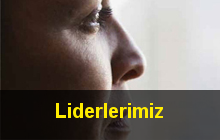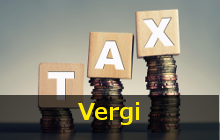
Is it still possible to conduct partial spin-off transactions?
Atty. Ayşe Cânan Doksat - Atty. Öykü Öcal
Partial spin-off transaction has entered into Turkish legislation with the amendment of former Corporate Tax Law no. 5422 in accordance with the European Union regulations. Currently, legal principals and procedures of partial spin-off is regulated under Turkish Commercial Code ("TCC") no. 6102 while the taxational terms and consequences of the transaction are stipulated under Corporate Tax Law ("CTL") no. 5520.
Assets that may be transferred through a partial spin-off transaction is determined clearly under Article 19 of CTL as participation shares which are kept for over 2 years under company assets, immovable and manufacturing or service businesses.
Besides, it is known that Revenue Administration evaluates transfers of immovables and manufacturing or service businesses through partial spin-off in a restricted manner. As a result of that approach, Ministry of Finance Revenue Administration ("Administration") published Communique on Amendment of General Communique series no: 1 on Corporate Tax (Serial No:13) ("Draft Communique") dated 24.03.2017.
Unfortunately it appears that the Draft Communique prescribes restrictions that are not existing within the laws and accordingly effects the applicability of partial spin-off transaction.
Hence the Draft Communique constitutes contradiction to principle of "legality of taxes" provided under Article 73 of Constitution.
Under mentioned Article it is determined that essential components of tax (liable person, subject, tax basis, ratio etc.) shall be regulated with codes without exception.
Authority provided to Ministry of Finance is restricted with the determination of procedural rules with regard to tax issues prescribed under tax laws; clarification of the implementation and the specification of comments and stating explanations with the communiques prepared.
On the other hand, we are of the opinion that, these boundaries that are provided to Ministry of Finance are violated with the Draft Communique published by Revenue Administration and by acting like a lawmaker, new regulations in a restrictive manner is prescribed for "partial spin-off" transaction.
Within the scope of Draft Communique in question; the purpose of partial spin-off is defined and considering the definition, risk on evaluation of partial spin-off in a restrictive manner, which may lead to transformation of partial-spin-off to a transaction which is inactive and inapplicable, by Revenue Administration is revealed.
Under Draft Communique It is stated that; immovables like buildings, plots and lands which shows physical or technical unity with manufacturing and service enterprises and that cannot be separated from these enterprises shall not be subject to partial spin-off. It is thought that, this regulation which is planned to be put in force is contrary to provisions of CTC and Turkish Civil Code numbered 4721 and may lead to contrary results during implementation.
Last but not least; under Draft Communique, regulations on taxation of capital decrease within Transferor Company is prescribed for the cases that the shares of Transferee Company are given to shareholders of Transferor Company.
We are of the opinion that this regulation constitutes contradiction to the aim of the code, case law with regards to the subject and rulings given.
Hence, we hope that the regulations provided under Draft Communique will be re-evaluated as the promulgation of the provisions as stated under Draft Communique will lead to serious controversy resulting with a long litigation process that will effect both the Revenue Administration and taxpayers.
Explanations in this article reflect the writer's personal view on the matter. EY and/or Kuzey YMM ve Bağımsız Denetim A.Ş. disclaim any responsibility in respect of the information and explanations in the article. Please be advised to first receive professional assistance from the related experts before initiating an application regarding a specific matter, since the legislation is changed frequently and is open to different interpretations.










 Başa Dön
Başa Dön